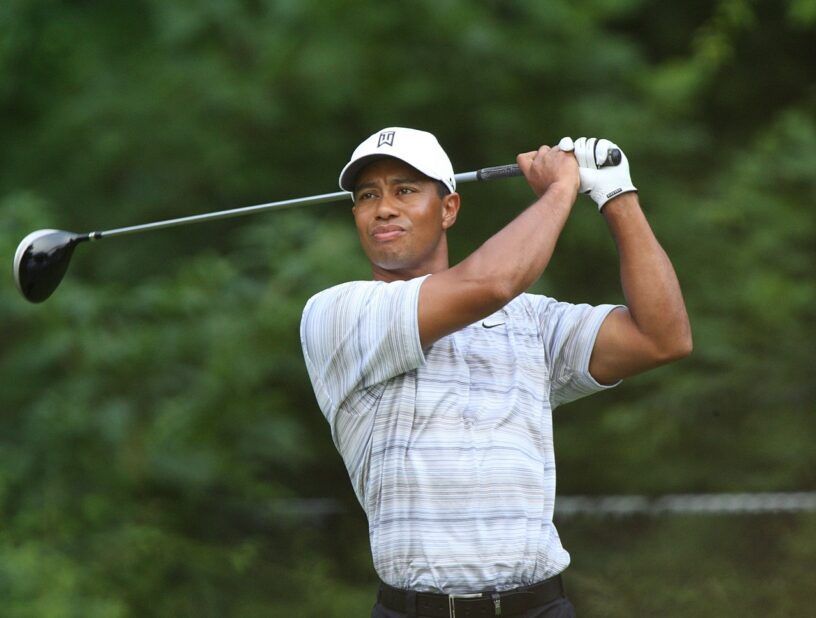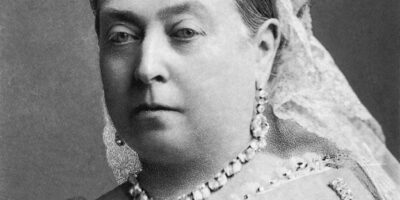10 Important Historical Events in Sports
Sports have been a fundamental piece of human existence for millennia, and from the beginning of time, sports have been molded by historical events. Large numbers of the main historical occasions in sports have occurred in the advanced period, for example, the foundation of the Olympic Games and the creation of the cutting-edge soccer ball. Other outstanding occasions incorporate the presentation of the elite sports league, the development of the Public B-ball league, and the creation of the primary fake turf. Moreover, the establishing of the Global Olympic Board, the principal significant worldwide game, and the establishment of the primary expert baseball association are immeasurably significant crossroads throughout the entire existence of sports. These occasions significantly affect the improvement of sports and their worldwide reach. In this article, we explore ten important historical events in Sports.
1. The Introduction of the Dream Team in 1992

National Archives at College Park – Still Pictures, Public domain, via Wikimedia Commons
The Dream Team, the profoundly celebrated and notorious b-ball team of the 1992 Summer Olympics, was the initial time in history that the USA was addressed by proficient players in the Olympics. This group included probably the most amazing and capable players ever like Michael Jordan, Magic Johnson, Larry Bird, and Charles Barkley. It was a group that was normal to rule and that is unequivocally the thing they did. In their most memorable game against Angola, the Fantasy Group won by 68 and proceeded to overwhelm their adversaries all through the remainder of the competition. They dominated their eight matches by a normal of 43.8 places and the gold decoration with a score of 117-85 against Croatia. The Fantasy Group is presently prestigious as quite possibly of the most famous group in sports history and their exhibition in the 1992 Olympics has turned into a benchmark for future Olympic b-ball teams.
2. Tiger Woods’ Historic Win at the 1997 Masters
On April 13, 1997, Tiger Woods left a mark on the world by turning into the most youthful ever champ of the Experts Competition. At only 21 years and 90 days old, Woods entered the competition as an obscure novice and left it as a hitting-the-fairway whiz. His record-breaking success was wonderful, as he turned into the main African American to win the competition and the principal individual to win it in an unexpected passing season finisher. He won by 12 strokes, a record that stands today. Despite being the dark horse, Woods’ noteworthy and predictable play all through the competition acquired him the title. His triumph was a fantastic second in golf and one that will continually be recollected.
3. The Launch of the Premier League in 1992

Sdo216, CC BY-SA 3.0, via Wikimedia Commons
The Premier League was sent off in Britain in 1992, supplanting the Football Association First Division as the most noteworthy division of English football. It achieved another time in the game, with an exceptional degree of corporate greed, global openness, and abundance for its clubs. The top division of the Premier League is comprised of 20 groups, who play each other two times a season in a 38-match design. Each group gets the opportunity to bring home the championship, and the last three groups are consigned to the Football Association Title. Top players from around the world have been drawn to the Chief Association, and the degree of the contest has been raised essentially. Off the pitch, the Premier League has turned into a significant worldwide brand, with TV broadcasting freedoms being offered to more than 212 nations around the world. The Premier League stays one of the most well-known and effective football associations on the planet.
4. Jackie Robinson Breaking the Color Barrier in 1947
Jackie Robinson was an unbelievable baseball player who broke the color barrier in 1947 by turning into the principal African American to play in Major League Baseball. He achieved an accomplishment that no other African American had the option to do previously, and his boldness and assurance helped prepare for more prominent racial joining in the two games and society. During his 10-year vacation, Robinson won various honors and acknowledgments, including the debut MLB The new hotness grant and the debut MLB Most Significant Player grant. He was enlisted into the Baseball Corridor of Notoriety in 1962, turning into the primary African American to be drafted. Robinson’s heritage is recollected and praised today, and his fortitude and assurance to break the color barrier won’t ever be neglected.
5. The first FIFA World Cup in 1930

See page for author, Public domain, via Wikimedia Commons
The first FIFA World Cup was held in 1930 in Uruguay. The competition was coordinated by the Federation Internationale de Football Association (FIFA), the administering group of affiliation football. Thirteen public groups took an interest, including seven from South America, four from Europe, and two from North America. Uruguay was the host country, and the Uruguayans proceeded to bring home the title, overcoming Argentina 4-2 in the last. The competition was an incredible achievement, with more than 400,000 observers going to the matches. It was the principal global football competition of its sort, and it established the groundwork for future World Cups.
6. The Miracle on Ice at the 1980 Olympics
The Miracle on Ice was a vital second in the 1980 Olympics. The U.S. men’s hockey group, made up of novice and university players, had been allowed the little opportunity of winning against the veteran Soviet group, which had won the gold decoration in the five past Olympic games. Regardless of this, the U.S. group won in what has become perhaps of the most famous game snapshots ever. The game finished with a 4-3 triumph for the U.S. group, and the second was made significantly more notable by Al Michaels’ renowned call “Do you have faith in miracles? Indeed!” The U.S. group proceeded to win the gold decoration, making it perhaps the most celebrated crossroads in Olympic history.
7. Muhammad Ali’s “Rumble in the Jungle” in 1974

El Gráfico, Public domain, via Wikimedia Commons
In 1974, Muhammad Ali and George Foreman went head to head in an unbelievable bout known as the “Thunder in the Wilderness” in Kinshasa, Zaire. It was a notorious second for the universe of sports as Ali was the guarding scene heavyweight champion and Foreman was an undefeated challenger. This battle had an extraordinary methodology from Ali, known as “rope a moron”, by which he rested up against the ropes and ingested Foreman’s punches. By the eighth round, Foreman was depleted and Ali had the option to take him out and hold the title. This battle is as yet recognized as one of the best bouts ever.
8. Boston Marathon First Women’s Race in 1972
The Boston Marathon held its first women’s race in 1972. This is a significant achievement throughout the entire existence of ladies’ running and sports. The Boston Athletic Affiliation (BAA) had recently prohibited ladies from running in the long-distance race, referring to worries about ladies’ physiological and close-to-home capacities.
The adjustment of strategy was generally because of fights by ladies’ privileges advocates and the endeavors of Kathrine Switzer, a female sprinter who pursued the 1967 race utilizing her initials, and who was broadly captured running with her tucker number 261. On April nineteenth, 1972, twenty ladies arranged at the beginning line, with Switzer among them. Of the twenty, just nine got done, with Nina Kuscsik turning into the main lady to come out on top in the race.
The occasion was a triumph, and the next year, the BAA opened the long-distance race to all ladies. From that point forward, ladies’ cooperation in the race has risen consistently. The Boston Long distance race is currently viewed as a notable occasion for female competitors, who are praised for their accomplishments and commitment to the game.
9. Jesse Owens’ Four Gold Medals in the 1936 Berlin Olympics
At the 1936 Berlin Olympics, Jesse Owens accomplished an accomplishment that had never been achieved: winning four gold decorations in a solitary Olympics. He won the 100-meter run, the 200-meter run, the long leap, and the 4×100-meter hand-off. His successes at the Olympics were a significant catastrophe for Hitler’s Nazi system as they had intensely advanced an “ace race” hypothesis.
Owens’ triumphs showed that strength, ability, and athletic ability were not confined to the white race, however, could be accomplished by competitors, everything being equal. Owens’ successes were a significant achievement in the social liberties development, demonstrating the way that competitors, everything being equal, could contend, and win, at the most elevated levels of the game.
10. The 1896 Summer Olympics

See page for author, Public domain, via Wikimedia Commons
The 1896 Summer Olympics, held in Athens, Greece, was the primary current global Olympic Games. Held from April 6-15, the games highlighted 241 competitors from 14 countries contending on 43 occasions in nine unique games, including Olympic-style events, vaulting, tennis, cruising, swimming, shooting, weightlifting, cycling, wrestling, and fencing. The American group, driven by James Connolly, was the best, bringing back home 11 decorations in general. Greek sprinter Spiridon Louis won the loftiest occasion, the long-distance race, before a cheering horde of 80,000. The games additionally saw the presentation of the Olympic Promise, taken by all members, as well as the Olympic Banner and the Olympic Psalm. The games were an incredible achievement, and cutting-edge Olympic development was conceived.
From the first Olympic Games to the Super Bowl, sports have had an unquestionable presence in our lives and have formed our way of life in manners that keep on affecting us today. While we may not recall every occasion in sports history, the ones that we truly do recollect will keep on being important for our aggregate memory for some ages to come.
Planning a trip to Paris ? Get ready !
These are Amazon’s best-selling travel products that you may need for coming to Paris.
Bookstore
- The best travel book : Rick Steves – Paris 2023 – Learn more here
- Fodor’s Paris 2024 – Learn more here
Travel Gear
- Venture Pal Lightweight Backpack – Learn more here
- Samsonite Winfield 2 28″ Luggage – Learn more here
- Swig Savvy’s Stainless Steel Insulated Water Bottle – Learn more here
Check Amazon’s best-seller list for the most popular travel accessories. We sometimes read this list just to find out what new travel products people are buying.










